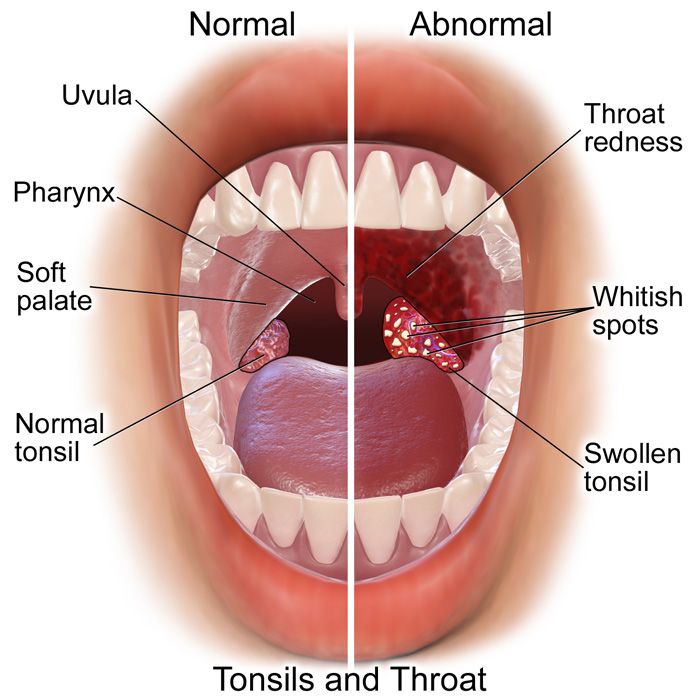Sore throat (pharyngitis) commonly affects children and adults. Most sore throats are caused by a viral infection. Some sore throats are caused by bacterial infections – these are often known as strep throat because they are caused by group A streptococci germ. These strep throat infections cause throat pain and can lead to serious complications including rheumatic fever.
Who gets strep throat?
Strep throat infection is most common in school aged children but can occur at all ages. The strep germ is spread by droplets of spit (saliva) which enter the air through coughing or sneezing. The germ can also be spread by contact with fluid from the nose or from infected skin sores. Spread of the strep germ is more common in overcrowded housing and where hygiene facilities for hand and body washing are limited. The strep germ can live in the nose and mouth of some people without causing symptoms. This is known as colonization or carriage.
What are the complications of strep throat?
The major complication of strep throat is acute rheumatic fever (ARF). Other complications can include throat abscesses or ear infections. Kidney disease (post-streptococcal glomerulonephritis) can also follow strep throat.
Symptoms of a sore throat
People with a strep throat may have:
- Throat pain or pain on swallowing
- Fever higher than 38°C / 100.4°F
- Feeling unwell with headache, nausea, vomiting or weakness.
Diagnosis
It can be difficult for health workers to know whether throat pain is caused by a viral infection or by the strep germ. Health workers may examine the throat, use rapid diagnosis kits or throat swabs to diagnose strep infection. Results from throat swabs are usually not ready for a number of days. Results from rapid tests may be ready in less than an hour but are not available in all countries and are not as always accurate as a throat swab.

Treatment
Appropriate antibiotic treatment of a strep infection can reduce the risk of developing RF by 80%. Many countries have guidelines for the type of antibiotics needed to treat strep throat. Some countries use antibiotic injections, in other places antibiotic tablets may be given. It is important to take these tablets for as long as recommended, even if the sore throat gets better sooner. Most children with strep throat will need time off school. Staying away from school for the first day of antibiotic treatment helps avoid spreading the infection to other children.
What can I do?
Teachers
Good hygiene can reduce the spread of the strep and other germs. Children should be encouraged to:
- Cover their nose and mouth when coughing or sneezing
- Blow runny noses often and throw away dirty tissues
- Wash hands often
Parents
should be told if their child complains of sore throat at school so
that they can seek medical advice.
Teach your class that ‘sore
throats matter’ and to always let an adult know if they have a sore
throat.
Parents
- Children who live in communities with high rates of RF should see a doctor or health worker whenever they have a sore throat
- Children who have been given an antibiotic to treat strep throat may need to be reminded to take all of their tablets. It is very important that all tablets are finished to prevent development of ARF.
Clinicians
Local or national guidelines on the diagnosis and management of sore throat should be developed.
Policy Makers
- In countries with a high burden of ARF/RHD campaigns to raise awareness about the importance of diagnosis and treatment may be needed.
